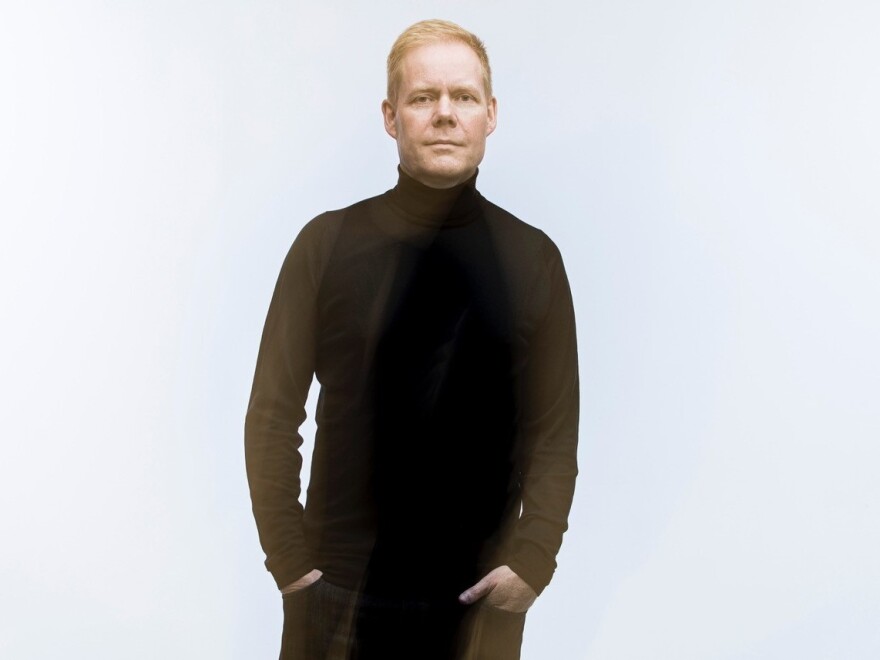Composer Max Richter has scored soundtracks and had his music placed across film and television, including recent Hollywood movies such as Mary Queen of Scots, Hostiles and Ad Astra. But Richter's also a composer who's not afraid to take on political issues in his music. In his previous works, he's responded to the conflict in Kosovo, the Iraq War and the 2005 London terrorist attacks. On his latest album, Voices, he takes inspiration from the Universal Declaration of Human Rights.
NPR's Gemma Watters spoke to Max Richter about the echo between the post-World War II world and today, finding a narrator after watching If Beale Street Could Talk and the way the album fits into the present moment, even though he started work on it 10 years ago. Listen in the audio player above, and read on for highlights of the interview.
Interview Highlights
On finding musical inspiration in the Universal Declaration of Human Rights
We live in a time of anxiety — a troubled time, anyway, dark times — and I wanted to put something into the center of the piece which provided a hopeful perspective. The Universal Declaration of Human Rights is this extraordinary document which comes out of another dark time, the Second World War, where the world was basically in ruins, in ashes. And yet these people came together under Eleanor Roosevelt and wrote a blueprint for a better world, and I think that's a wonderful human achievement. And there's something very inspiring and hopeful about that text.
On choosing the narrators forVoices
When I started thinking about how to present the text, I decided I wanted it to be spoken, not sung, because I wanted it to be completely intelligible and clear. I came across this recording of Eleanor Roosevelt from 1949 reading the preamble, and since she's so fundamental to the writing of the declaration, I just thought it'd be wonderful to start with her. So she reads the opening of the preamble in this incredible posh voice from that time, and then she hands forward 70 years to KiKi Layne. I wanted KiKi Layne to do the main narration because I'd heard her narration in If Beale Street Could Talk,which is a fantastic film from a couple years ago. The thing about her voice is it's a very young-sounding voice and I really wanted to convey that sense of youth and potential in that performance because the Declaration is really about the future; it's about the world we haven't made yet.
I wanted to make the record feel as universal as possible, as democratic a space as possible, and that meant having other voices in there. So we put out a call on social media and just asked people to send in recordings just made on their phones or whatever, of them reading part of the Declaration. We had an amazing response, hundreds of recordings flooding in in all kinds of languages. And I used those recordings to make a kind of landscape that the music flows through.
On the wayVoicesresonates within the present civil rights struggle in America
Voices was 10 years in the making, so it isn't a direct response to the present moment, but obviously the issue of rights abuses and social justice are — that issue is unfortunately always relevant because human rights are under attack around the world all the time. It's natural that we look at these questions through the lens of the present moment, and obviously in America, there's been as systematic and widespread racial abuse for, well, you know, kind of forever, and that's all coming to head at the moment so it's very natural that we should see it in those terms. But Voices is a piece about the really fundamental questions underlying all of this, which is a basic human equality.
Copyright 2021 NPR. To see more, visit https://www.npr.org. 9(MDAxNzg0MDExMDEyMTYyMjc1MDE3NGVmMw004))







